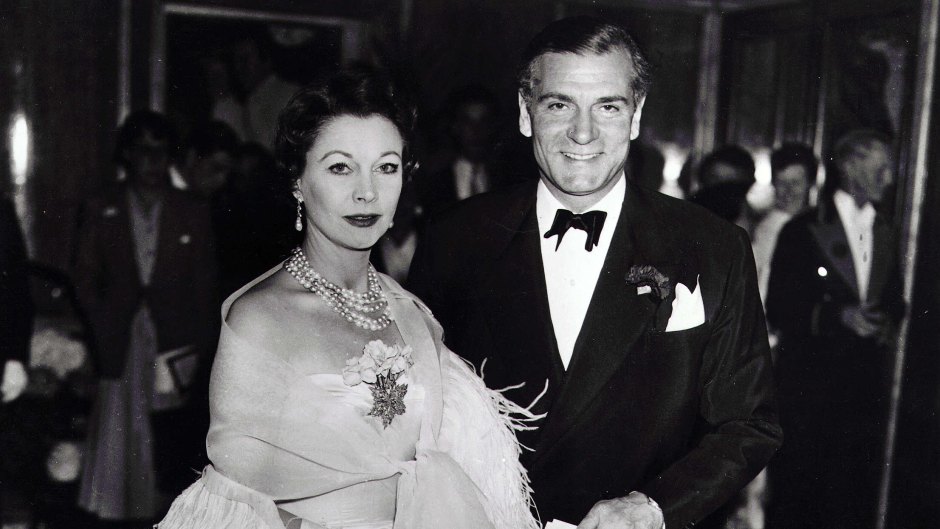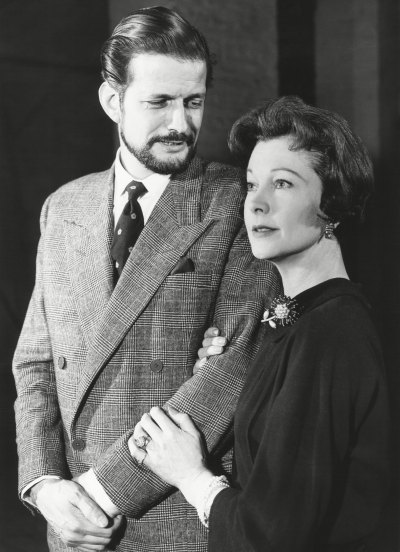
Kobal/Shutterstock
Inside Actress Vivien Leigh’s Lovers Who Tried to Save Her During Her Struggles With Bipolar Disorder
“Please, please my angel, send me a word of what the doctor said, and if it is possible, ask him to send me a report,” legendary actor Laurence Olivier once wrote in a letter to his equally iconic wife, Vivien Leigh, ailing with a recurrent bout of tuberculosis. “You’re the only person in the world who could make hideously selfish me love another more than I do myself.”
Vivien became a legend by bringing Gone With the Wind’s Scarlett O’Hara and A Streetcar Named Desire’s Blanche DuBois blazingly to life on-screen, but off-screen she was tormented by bouts of physical and mental illness. And though they adored her, the men in her life — especially first husband Leigh Holman, her greatest love, Laurence Olivier, and her last partner, actor John “Jack” Merivale — found themselves helpless in the face of her struggle with bipolar disorder.
Olivier “likened the situation to reaching out to a drowning person from a life raft and being unable to rescue that person without being pulled under,” Kendra Bean, author of Vivien Leigh: An Intimate Portrait, exclusively tells Closer Weekly, on newsstands now. Still, they did what they could to help her until her death at 53 in 1967.
Vivien’s mental health issues may have been genetic, but Alan Strachan, author of Dark Star: A Biography of Vivien Leigh, tells Closer that the actress, who was born in British-controlled India, suffered from abandonment issues as a child.

Vivien Leigh and John Merivale
“At the age of 6, she was uprooted from her blissfully happy childhood in India and dumped in a very chilly, cold convent in London and left,” he explains.
At 19, while studying acting at London’s Royal Academy of Dramatic Art, Vivien met Holman; they wed and had a daughter, Suzanne. The marriage faltered, however, after she was introduced to Olivier. Two consummate actors, they had “absolute, total absorption in each other — sexually, mentally,” says Strachan.
Still, Holman remained an important presence. “He was helpful to and supportive of Vivien for the rest of her life,” says Strachan. “He never stopped loving her and … she totally trusted him.”
Things were more passionate with Olivier. “O my darling little love I do long for you so,” he wrote to her early on. But that fire — while carrying them into a 20-year marriage — eventually drove them apart. “Her libido was exacerbated by her manic phase, and Olivier couldn’t cope,” Strachan says.
The famed couple shocked the world, splitting in 1953 while Vivien was having an affair with her Elephant Walk costar Peter Finch. But during filming, she suffered a breakdown and was replaced by Elizabeth Taylor. While hospitalized in England, Vivien underwent harsh treatments, including electroshock therapy and being “wrapped in wet sheets and put into barbiturate-induced comas,” Bean says.
Vivien survived and eventually fell for actor Jack Merivale. “He was patient and had the capacity to take care of her,” says Bean, adding Vivien was “much calmer in these later years.” Like her earlier lovers, Merivale remained devoted to her talent and beauty. But perhaps, like so many of her fans, the men in her life were also drawn to her fragility.
“The fairy godmother gave her every single blessing — beauty, money, charm, talent — but she was bipolar,” Strachan tells Closer. “There was a flaw in the perfection that fascinated people. There was a crack in the mirror.”
— Lisa Chambers
For more on this story, pick up the latest issue of Closer magazine, on newsstands now.







































